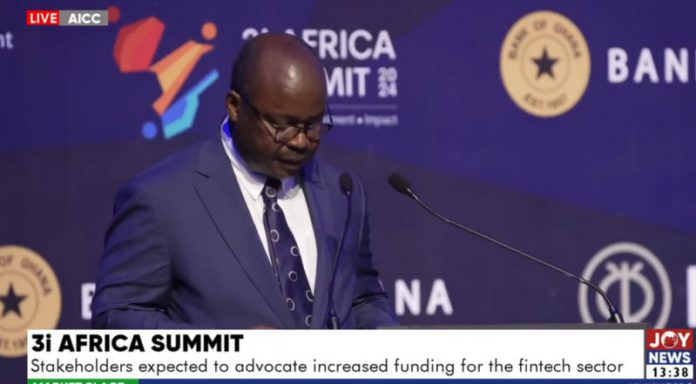The Institute of Statistical, Social and Economic Research (ISSER) has urged the Bank of Ghana (BoG) to take decisive action against unregistered and unregulated foreign exchange (forex) businesses to ensure macroeconomic stability and curb exchange rate volatility.
This recommendation is part of ISSER’s 2024 Mid-Year Budget Review, titled “A Critical Assessment of the 2024 Mid-Year Budget by ISSER.”
The review notes some improvements in Ghana’s macroeconomic environment in 2024, as evidenced by various monetary and financial sector indicators.
Inflation rates have decreased, with an average rate from January to June of 23.9% in 2024, down from 46.1% in the same period in 2023.
The cedi’s cumulative depreciation rates also improved, showing lower rates against major currencies compared to 2023.
Specifically, the cedi depreciated by 20.9% against the US dollar and 20.23% against the pound sterling in the first half of 2024, compared to 27.8% and 34.1%, respectively, in the same period in 2023.
ISSER attributes these positive developments to the IMF Extended Credit Facility (ECF) programme, which has compelled both monetary and fiscal authorities to operate within a disciplined fiscal and monetary framework.
Despite these gains, ISSER emphasizes the need for further action to stabilize the exchange rate.
The review states, “Assess the size of the informal forex market and institute efforts to reduce its dominance and activities that drive exchange rate instability. The Bank of Ghana, in collaboration with law enforcement agencies, should clamp down on unregistered and unregulated businesses.”
The review also highlights the slower growth in money supply in 2024, attributed to lower growth in Net Domestic Assets (NDA). The growth in total liquidity has slowed compared to the same period in 2023, with money supply growing by 34% in 2024, down from 44.4% in 2023. This indicates a need for effective monetary and fiscal policy coordination to support continued macroeconomic stability and growth.
ISSER recommends that the Bank of Ghana and fiscal authorities strengthen their partnerships with global and regional financial institutions, development partners, and the private sector to unlock resources for sustaining economic recovery.
“Effective monetary and fiscal policy coordination is needed to support macroeconomic stability and growth.
“The Bank of Ghana and fiscal authorities should strengthen their partnerships and institutional coordination with global and regional financial and economic institutions, development partners, and the private sector to unlock resources to catalyse and sustain economic recovery,” the review suggests.
Furthermore, ISSER advises that the Development Bank of Ghana should provide cheaper funding to the agricultural and light manufacturing sectors to enhance local industry’s capacity to produce import substitutes and improve export competitiveness.
“The central bank and the fiscal authorities should ensure that the Development Bank of Ghana provides a cheaper source of funding to the agricultural and light manufacturing sectors to support higher value addition.
This will significantly enhance local industry’s ability to produce import substitutes and improve export competitiveness,” the review recommends.
By clamping down on unregistered and unregulated forex businesses and implementing these recommendations, ISSER believes that the Bank of Ghana can further stabilize the exchange rate, enhance price stability, and support sustainable economic growth.
Source: Raymond Acquah
ALSO READ:

